Life
Sign up for our newsletter
We summarize the week's scientific breakthroughs every Thursday.
-
 Life
LifeMini ‘wind farm’ could capture energy from microbes in motion
Bacteria could spontaneously organize and rotate turbines, computer simulations show.
-
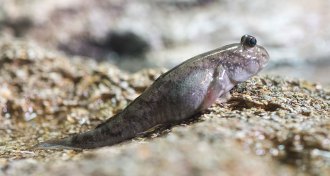 Life
LifeHightailing it out of the water, mudskipper style
A robot and a land-walking fish show how a tail might have made a huge difference for early vertebrates conquering the slippery slopes of terrestrial life.
By Susan Milius -
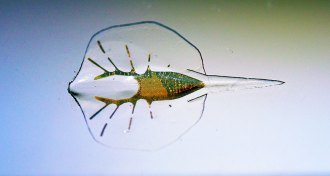 Tech
TechLight-activated heart cells help guide robotic stingray
Layers of silicone, gold and genetically engineered rat heart cells make up the body of a new stingray robot that can swim in response to light.
By Meghan Rosen -
 Life
LifeArtificial hearing has come a long way since 1960s
Scientists envisioned artificial hearing 50 years ago. Today, they are working to make it superhuman.
-
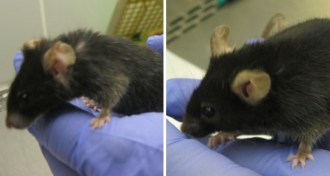 Life
LifeDonor mitochondria could influence metabolism, aging
Mitochondrial DNA donation could have unexpected long-term health consequences for “three-parent babies.”
-
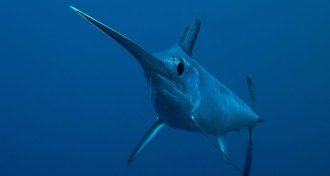 Animals
AnimalsTo zip through water, swordfish reduce drag
A newly discovered oil-producing organ inside the swordfish’s head gives the animal slick skin to swim faster.
-
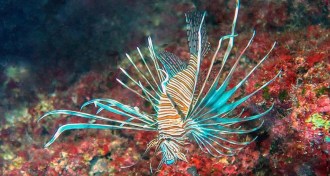 Animals
AnimalsLionfish invasion comes to the Mediterranean
Scientists had thought that the Mediterranean was too cold for lionfish to permanently settle there. But now they’ve found a population of the fish off Cyprus.
-
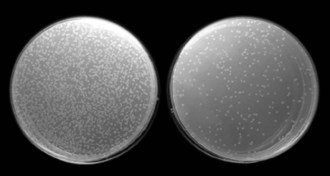 Neuroscience
NeuroscienceRewarding stimulation boosts immune system
Activating feel-good nerve cells boosts mice’s immunity, a new study suggests.
-
 Life
LifeLetting parasites fight could help battle drug resistance, too
Helping one strain of malaria trounce another in lab mice demonstrates a way of avoiding the evolution of drug resistance.
By Susan Milius -
 Climate
ClimateWarming alters mountain plant’s sex ratios
Global warming has different effects on male and female plants. Tracking sex ratio shifts could be a fast signal of climate change, researchers say.
-
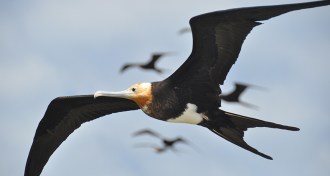 Animals
AnimalsFrigate birds fly nonstop for months
The great frigate bird can fly for up to two months without landing, thanks to a boost from wind and clouds.
-
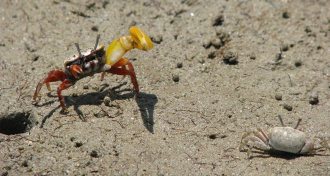 Animals
AnimalsSneaky male fiddler crabs entrap their mates
Some male banana fiddler crabs get a female to mate with them by trapping her in their burrow, a new study finds.